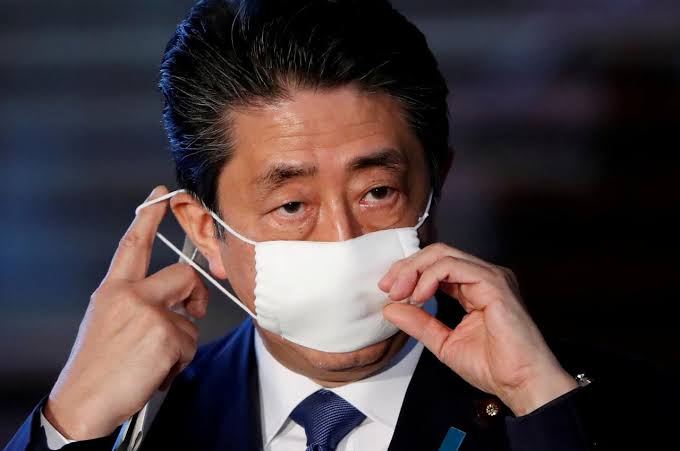Japan, on Thursday said it was preparing to widen a state of emergency to the entire nation, beyond just major cities.
SEE ALSO: Nigerian entertainers care less about their health – Nollywood actress says
A government official also said Prime Minister Shinzo Abe would change a draft supplementary budget to provide cash pay-outs for everyone.
With more than 9,000 coronavirus infections and nearly 200 deaths nationwide, the government has declared an emergency in Tokyo and six areas including western Osaka.
But other regions have sought to be added amid worries about the spreading virus.
While short of a lockdown, the state of emergency imposed for a month from April 7, gave authorities more power to push people to stay home and businesses to close.
It now covers about 44 per cent of the population.
Japan’s Health Minister, Katsunobu Kato, said officials were worried about the rapid spread of infections, which have increased 2.2 times between April 7 and Wednesday.
“We’re very concerned about the possibility that people, travelling during Golden Week, could take the virus to places that haven’t had so many cases yet,’’ Kato said, referring to a holiday at the end of April when people travel en masse.
Abe is under pressure to do more to control the virus amid perceptions that his response has been too little, too late, denting his support rates.
Japan faced a long battle and governors would need to tailor their response to local needs, Koji Wada, an expert advising policymakers, told Reuters.
“We are still on the brink of the COVID-19 war,’’ added Wada, a professor at the capital’s International University of Health and Welfare.
“We are still just at the beginning.’’
The coronavirus has bitten deep into the world’s third-largest economy.
The government’s supplementary budget plan has set aside funds for cash payouts of 300,000 yen ($2,784) to households, whose incomes have been hit by the virus.
Abe’s administration will change the plan to deliver 100,000 yen to every citizen, the government official, who has direct knowledge of the matter, told Reuters.
The change follows growing calls from ruling and opposition lawmakers for bolder steps by Abe to help people ride out the pandemic’s impact.
The International Monetary Fund, which expects Japan’s economy to contract 5.2 per cent this year, has urged it to boost fiscal spending and focus on easing the hit to growth.
Sources have told Reuters the Bank of Japan is likely to project an economic contraction for this fiscal year and discuss further measures to ease corporate funding strains at its rate review on April 27-28.
Before it can take effect, parliament must approve the draft supplementary budget, compiled to fund a near $1 trillion stimulus package, which Abe’s administration unveiled last week.
It is rare for the government to make changes to a draft budget, which is carefully prepared by the finance ministry to account for the views of politicians.
Any change would underscore the challenge Abe faces in tackling the growing economic toll of the pandemic without putting too much strain on already tattered finances.
A Reuter’s poll showed most Japanese corporations were disappointed by the government’s stimulus plan.
Surveys show Abe has lost support over what critics call a timid and sluggish pandemic response, and an appearance of being tone deaf to the severity of the crisis in his own social media posts.
Support for Abe’s cabinet fell four points to 39 per cent in an NHK survey published on Monday, with 75 per cent, saying his emergency declaration came too late.

